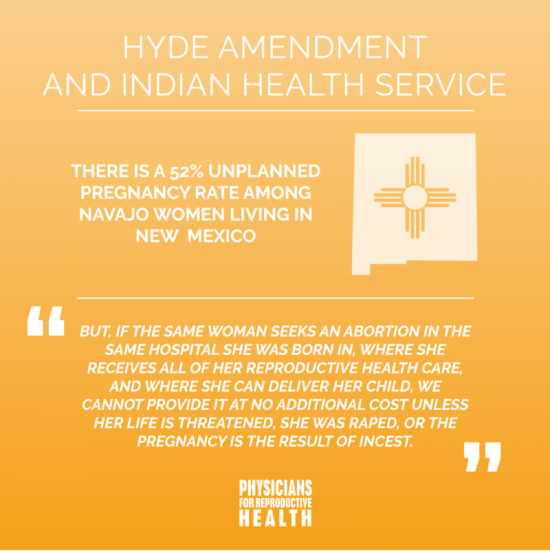
Image courtesy of Rewire
Congresswoman Deb Haaland (D-NM) was part of the record-breaking wave of women candidates who won in the 2018 mid-terms. She and Sharice Davids are the first two American Indian women elected to the U.S. Congress. Now that she is in Washington, Rep. Haaland is bringing attention to the devastating reproductive health challenges faced by American Indian women throughout the U.S.
On February 13, in collaboration with the US Human Rights Network and the Center for Reproductive Rights, Rep. Haaland hosted a briefing on the topic for staffers of the U.S. House of Representatives. During the “Native American Women and Maternal Health” briefing, Native American women leaders shared “their perspectives on the policy changes that are needed to improve maternal health and related reproductive rights issues in their communities, including addressing the epidemic of missing and murdered indigenous women, barriers to accessing health care, and funding for community-centered healing solutions.” The panel of experts featured the reflections of Sarah Adams-Cornell of Matriarch, Enedina Banks, Melissa Rose of the Changing Woman Initiative, and Lauren van Schilfgaarde of the Tribal Law and Policy Institute.
The panelists highlighted a variety of reproductive health challenges faced by American Indian women in this country, including disproportionately high rates of maternal mortality, limited access to midwifery care and midwifery training, and legal and practical barriers related to seeking abortion services (e.g. the Hyde Amendment).
During her campaign, Rep. Haaland included health, including reproductive health, as one of her key priorities. In her own words, “I support a woman’s right to choose when and how to have a child, full access to contraception and believe that everyone should have access to affordable healthcare — which means we need to expand access to abortion care. Far too many rural women, poor women, and women of color simply do not have access to the healthcare they need to stay healthy. I believe that we need to protect access to care, not just choice about that care. Policies that successfully protect and advance American Indian’s reproductive health require.”
Let’s hope she can find some colleagues in Congress who are willing to listen and take long overdue action to respond to the critical reproductive health challenges faced by American Indian women in the U.S.
For those interested in learning more about this topic, check out the following resources:
- Reproductive Justice: The Politics of Health Care for Native American Women (Barbara Gurr)
- “Reproductive Rights in Native America” (Jade Begay)
- “Intersections: Indigenous Midwifery, Reproductive Justice, & Indigenous Feminism” (Nicolle Gonzales)



